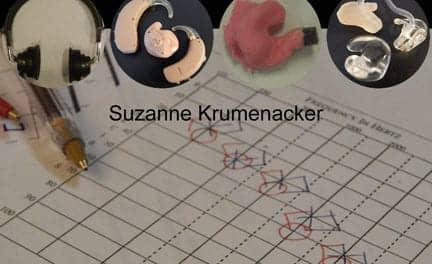Final Word | October 2016 Hearing Review
Not long ago, I was conducting an online search and came across a photo of a person upside down in mid-air. It was click-bait, and for some reason I clicked on it. It turned out to be a legitimate news story about a photographer going to great lengths to get photos of base jumpers—those daredevils who parachute off buildings and cliffs and usually make it down safely. The story was about how the photographer learned the technical aspects of base jumping and how to position a camera to catch the jumpers at the right moment. The photographer was hanging from a rope when he captured the photo that first got my attention.
What interested me most about the story, though, was the preparation these jumpers went through before jumping. The author mentioned in an offhand remark how the jumpers he photographed not only had wind indicator flags on their take-off surface, but before jumping would also carefully approach the edge, sense the breeze, and spit a couple of times over the edge to see how the expectorant behaved on the way down. “Spitting in the wind” is an idiom that describes doing something pointless or fruitless, but for these base jumpers, spitting in the wind brought them useful and probably lifesaving information. I found this offhand information more interesting than the main thesis of the story on action photography.

Because of her hearing loss and needs in noisy settings, we did add a remote mic and remote control combination for her system a year or so later, and she learned to use it very effectively. I remembered the phone comments recently, when she let me know that she and her husband had finally obtained smart phones, and had asked a young relative to teach them how to use them to take self-portraits, or selfies.
Those earlier offhand comments she had made about the phones should have better prepared me for the fact that, with extra instruction, she could adapt to new technology. I was very lucky that she had been capable and motivated enough to adapt to the remote mic/remote control device I had recommended. If I had paid more attention to her offhand comments in the beginning, I would have built in additional training time with the device. As it was, the benefit with the remote mic was so dramatic that it had provided the motivation she needed to override her Luddite tendencies.
One of my favorite offhand comments that patients make when we are discussing needs and preferences is “I’m not vain…” which I have learned to follow up with some serious questions. A person may not be vain, but may have some real concerns about how a very visible product may affect work or social communication. I have found it a helpful tactic to acknowledge these concerns up front—even if voiced offhandedly—and discuss all options, limitations, and benefits, giving cosmetics a fair hearing in the process.
Recently, I was working with a patient who presented with a very challenging asymmetric hearing loss. In spite of a moderate-to-severe hearing loss that appeared to offer good residual hearing, her word recognition and functional communication were very poor without visual input. I was wrestling with both a diagnostic and rehabilitative puzzle. We discussed her history at length, but nothing came up that would explain the poor and somewhat unusual test results. In the context of discussing her tinnitus symptoms, I questioned her about aspirin, and she denied routine usage. At a following visit, however, she confided in me that one time in the past she had “tried to hurt” herself by taking a massive quantity of aspirin. This wasn’t an offhand remark, but she brought it up because of my earlier questions and comments about possible causes of her symptoms. My somewhat offhand remarks on that previous visit had stuck with her.
The Final Word? People often are conflicted when considering a hearing treatment plan, and how much information to share with us. It may be difficult for them to admit they are having difficulties or concerns about the cosmetics, value, or effort associated with what we offer. We may be better able to help them through the process if we listen not only to their direct statements, but also to the offhand remarks they make that can offer insight into their deeper thoughts. Listening to offhand chatter is not pointless; it can guide us on the path to better communication and, undoubtedly, a better treatment plan.
Dennis Van Vliet, AuD, has been a prominent clinician, columnist, educator, and leader in the hearing healthcare field for over 40 years, and his professional experience includes working as an educational audiologist, a private-practice owner, and VP of audiology for a large dispensing network. He currently serves as the senior director of professional relations for Starkey Hearing Technologies, Eden Prairie, Minn.
Correspondence can be addressed to HR or: [email protected]
Original citation for this article: Van Vliet D. The Final Word: How Offhand Remarks Can Guide Patient Treatment. Hearing Review. 2016;22(10):50.






